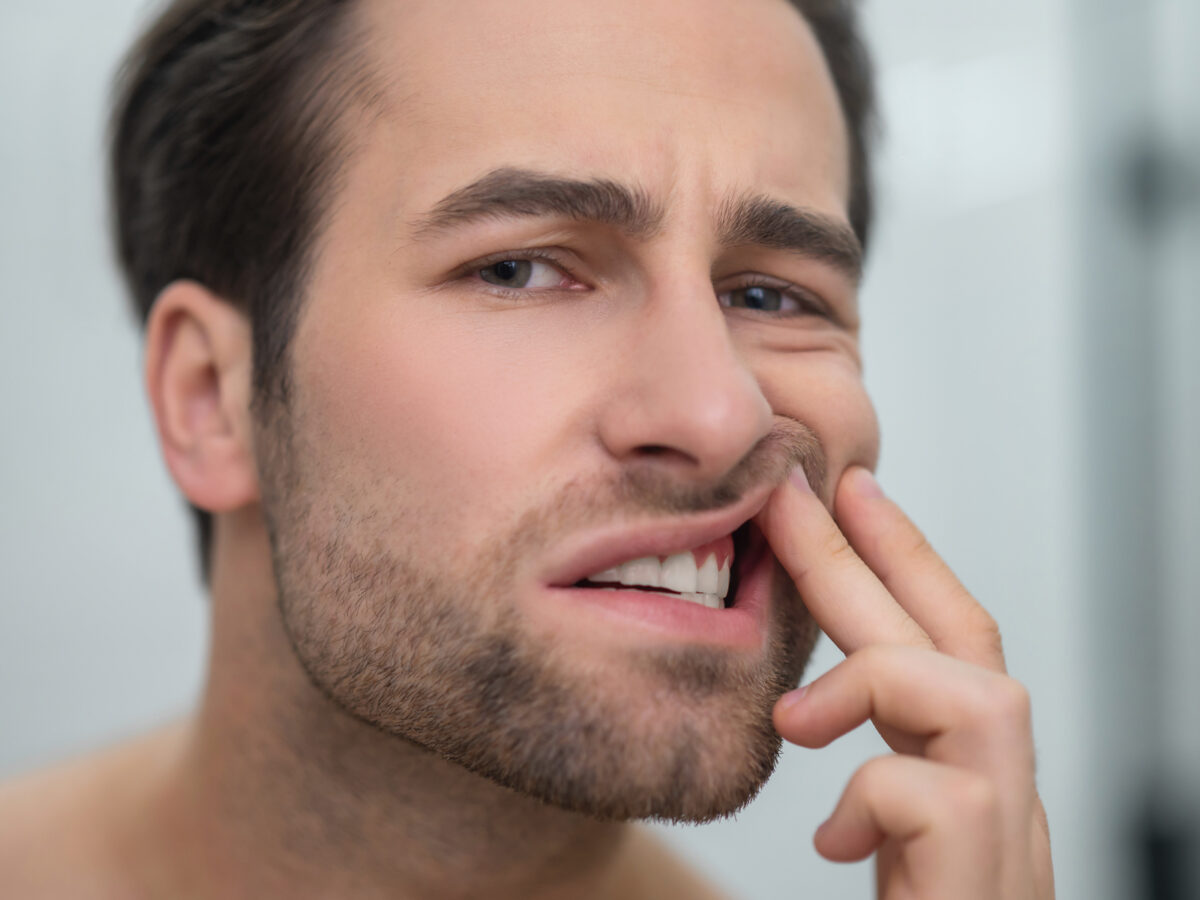Blog
Dental hygiene tips for healthy teeth & gums

Oral Care Tips For Alleviating Gum Sensitivity
Gum sensitivity is a common dental ailment that, if left untreated, can lead to significant discomfort and other oral issues. Fortunately, following a few simple oral care routines can improve gum health and reduce sensitivity. In this article, we’ll delve into these tips, emphasizing the importance of using a soft-bristled toothbrush and maintaining regular, thorough brushing.
Understanding Gum Sensitivity and Its Causes:
Before delving into oral care advice, it’s essential to understand gum sensitivity and what causes it. When you say your gums are sensitive, you’re likely experiencing pain, discomfort, or tenderness. Several factors can contribute to this:
- Excessive force while brushing or using a toothbrush with harsh bristles can cause gum discomfort.
- Gum sensitivity is a common symptom of gingivitis, the early stage of gum disease.
- Tooth decay, particularly cavities near the gum line, can lead to gum sensitivity.
- Hormonal changes, such as those during pregnancy or menstruation, can exacerbate gum sensitivity.
- Conditions like diabetes and other blood diseases have been linked to increased gum sensitivity.
Oral Care Tips to Reduce Gum Sensitivity:
Choose a Soft-Bristled Toothbrush: Opt for a soft-bristled toothbrush to protect your gums from irritation while brushing. Your gums and teeth will thank you for using a toothbrush with soft bristles.
Practice Gentle Brushing: Use a soft circular or back-and-forth motion to brush your teeth gently. Scrubbing too vigorously can irritate your gums and contribute to sensitivity, so it’s best to avoid aggressive brushing.
Select Fluoride Toothpaste: Choose a toothpaste that contains fluoride to reduce the risk of tooth sensitivity and cavities.
Floss Daily: Flossing twice a day helps prevent food debris and plaque buildup in hard-to-reach areas like between your teeth and along the gum line. This can help prevent gingivitis, a common cause of gum sensitivity.
Maintain a Nutritious Diet: Incorporate foods rich in vitamin C and other antioxidants into your diet. These nutrients can benefit gum health and reduce gum sensitivity.
Stay Hydrated: Drinking plenty of water keeps your mouth moist, reducing the likelihood of gum sensitivity.
Avoid Tobacco and Smoking: Smoking and other tobacco products can irritate the gums, leading to gum sensitivity. Quitting smoking can benefit both your teeth and gums.
Manage Stress: Stress can contribute to gum sensitivity. Practice relaxation techniques such as yoga, meditation, or deep breathing to alleviate stress.
Regular Dental Check-Ups: Visit the dentist regularly for check-ups. Dentists can diagnose gum sensitivity and provide guidance for effective treatment and prevention.
Use Desensitizing Toothpaste: If your gums are highly sensitive, consider using a desensitizing toothpaste. These products can help alleviate discomfort in your teeth’s nerves.
Custom Mouthguards: If you grind your teeth at night (bruxism), a custom-fitted mouthguard may help prevent sensitive teeth and premature tooth loss.
Understanding Healthy Gums:
Healthy gums should be pink, firm, and free of inflammation, bleeding, or pain. Symptoms such as inflammation, redness, bleeding during brushing or flossing, and pain may indicate gum disease. If you experience worsening gum sensitivity over time, it’s essential to consult a dentist or periodontist for a proper diagnosis and treatment plan.
Conclusion:
Gum sensitivity can be reduced, and good oral health can be maintained by using a soft-bristled toothbrush and following a regular oral care routine. By practicing excellent oral hygiene and taking proactive steps to care for your gums, you can prevent discomfort and keep your gums healthy and less prone to sensitivity.
If gum discomfort persists or worsens, do not hesitate to seek dental attention, as dentists are trained to diagnose and treat gum issues effectively.


